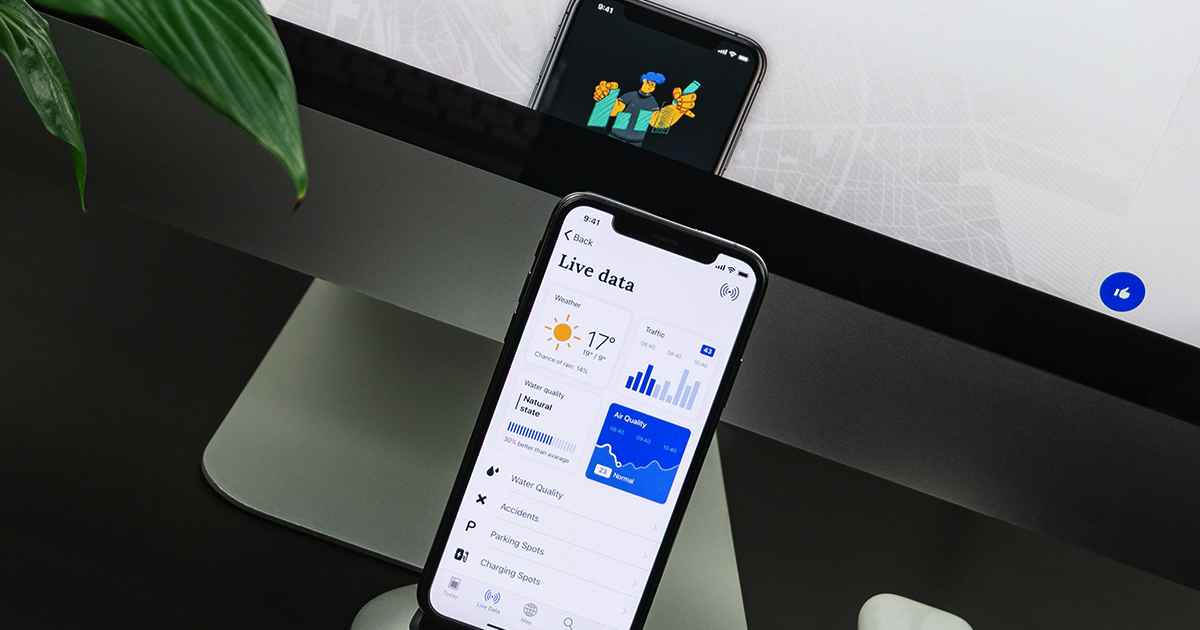


Sumber gambar: unsplash.com
In the fast-paced digital era, manual and traditional business management methods are no longer relevant. To achieve success, businesses must switch to using business-supporting applications. This application has proven effective in increasing efficiency, productivity and competitiveness.
Apart from looking for website development service providers in Jakarta, many business owners currently need application development services in Jakarta to support the continuity of their business.
In this article, we will discuss what a business application is, examples of business applications and their benefits for your company.
Business applications are software that is crucial for running business operations. It includes various systems and tools supporting critical functions such as financial management, manufacturing, human resources, logistics, etc. Business applications can be off-the-shelf commercial products, customised third-party systems, or even systems developed internally by a company.
Business applications can be installed on a desktop server or accessed cloud-based. Business applications enable companies to automate processes, increase efficiency, improve data-driven decision-making, and improve interactions with customers and business partners.
In other words, business applications are the information technology backbone of an organisation, facilitating various aspects from day-to-day operations to long-term strategy development.
Business applications are essential software for many businesses, from small to large corporations. The benefits are varied and can directly impact a company's productivity, efficiency and overall success. Before deciding to look for application development services in Jakarta, first consider the ten main benefits of using business applications:
Business Process Automation
Automation is the key to increasing efficiency. Business applications enable companies to automate many repetitive administrative and operational tasks. This includes ordering processing, inventory management, and financial record keeping.
By automating these processes, companies can reduce the risk of human error, increase the speed of task execution, and allocate human resources to more strategic tasks.
Increase Productivity
Productivity is the key to improving business performance. Business applications provide tools that help teams work faster and more efficiently. For example, project management tools allow for better scheduling, more efficient resource allocation, and real-time monitoring of project progress. This results in better output in less time, increasing overall productivity.
Better Data Analysis
Data is a valuable asset for every company. Business applications enable companies to collect, store, and analyse data better. These applications can provide deep insights into business performance, market trends and customer behaviour using advanced algorithms and analytics. This allows companies to make better, more precise, and more informed decisions.
Efficient Inventory Management
Inventory is an important part of business operations. The business application has advanced inventory management features, allowing companies to track stock more accurately, avoid inventory shortages or excesses, and optimise procurement processes. This not only saves costs but also ensures the availability of the right product at the right time.
Improved Customer Service
Customer service is key to retaining loyal customers and winning new ones. Business applications enable companies to provide better customer service. For example, an integrated customer support system allows agents to access customer history quickly, provide more timely solutions, and improve overall customer satisfaction.
Work Flexibility
Flexibility is important, especially in the ever-changing modern work environment. Cloud-based business applications allow employees to access data and tools from anywhere with an internet connection. This will enable employees to work remotely, while travelling, or outside official working hours. This flexibility improves work-life balance and helps companies attract and retain top talent.
Better Data Security
Data security is a top priority for every company. Business applications have advanced security features to protect company data from hacking and leaks.
This includes data encryption, two-factor authentication, and real-time security monitoring. By protecting data, companies can build customer trust and comply with strict data security regulations.
Improved Internal Communication
Effective communication is the key to successful collaboration. Business applications facilitate better internal communication through instant messaging, online collaboration, and discussion rooms. By enabling fast and efficient exchange of information, these applications improve team coordination, speed decision-making, and increase overall company productivity.
Increased Operational Efficiency
By automating many administrative and operational tasks, business applications help improve the overall efficiency of a business. This means less time spent on routine work and more time that can be allocated to more strategic and productive activities.
Increasing Business Competitiveness
By optimising business processes, increasing productivity, and improving customer service, business applications can help companies stay competitive in an increasingly competitive marketplace. Companies can gain valuable competitive advantages using the latest technology to improve performance and efficiency.
As explained above, business applications are created to facilitate various work processes. Some make communication easier; others make collaboration easier. Read more about ten examples of business applications that are widely used today:
Examples of Business Applications for Project Management
Examples of Business Applications for Communication and Collaboration
Examples of Business Applications for CRM ( Customer Relationship Management )
Examples of Business Applications for E-commerce and Online Sales
Examples of Business Applications for Accounting and Finance
Examples of Business Applications for Social Media Management
Examples of Business Applications for Design and Presentations
Examples of Business Applications for Data Analysis and Business Intelligence
Examples of Business Applications for Document Management and Cloud Storage
Examples of Business Applications for HR Management and Payroll
With the variety of business applications available, you may need help finding a platform that suits your company. In situations like this, developing your application is your best answer. This allows you to design specific applications according to your business needs.
Although it may sound intimidating, developing your business applications can be affordable and feasible, especially with today's various development tools and platforms. Here is a step-by-step guide on how you can develop your business applications to support your business growth:
Before you start app development, it is important to have a clear plan of what you want to achieve with the app. Identify your business needs, target audience, key features you want to include, and your app's long-term goals. This will help you direct development and ensure the resulting application meets your business needs.
Choose the platform that best suits your business needs, whether iOS, Android, or both. The choice of this platform will affect development costs, market reach, and user experience. Also, consider factors like the demographics of your target audience and user preferences to ensure your app can reach as many people as possible.
If you have yet to gain experience in app development, learning a programming language that suits your chosen platform is important. Fortunately, many online resources are free or affordable to help you learn programming languages such as Java for Android, Swift for iOS, or cross-platform languages like JavaScript.
You can use various online development tools to speed up the development process. These include development frameworks such as React Native or Flutter that allow you to create cross-platform applications with a single source code and user interface (UI) building tools to help you design attractive and easy-to-use user interfaces.
Once you have a plan and the tools you need, start building a prototype of your app. This initial version of the application contains the key features you are planning. Once the prototype is complete, test the application thoroughly to ensure it performs according to your expectations and can meet your business needs.
Once the prototype is tested, fix any issues and continue improving your app based on user feedback and experience. Feel free to adjust according to your business needs and market developments.
Once your app is ready to launch, implement effective marketing strategies to promote it to your potential customers. This can include social media campaigns, online advertising, partnerships with industry influencers, and more. Make sure to adapt your marketing strategy to the demographics of your target audience and the platforms you use.
Application development is a continuous process. Continuously update and improve your app over time based on user feedback, changes in technology, and market developments. Keeping your app relevant and up-to-date ensures your business continues growing and competing in an increasingly competitive market.
Developing your business applications to support your business is a challenging task. Still, with careful planning, the right knowledge, and appropriate tools, it can be a worthwhile investment in your company's future. By harnessing the power of digital technology, you can take significant steps towards long-term business growth and success.
Do you want to create your business application but need clarification about where to start or if you need an adequate team? Binari, as a Jakarta application development and Jakarta web development service provider, is ready to help you execute and transform your various business needs into the right business solutions. Contact Binari now and achieve your business success today!